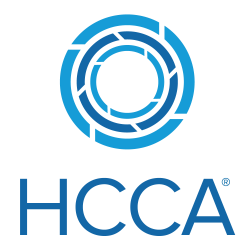With its recently issued qualification opinion on the use of electronic source direct data capture (eSource DDC) in clinical trials, the European Medicines Agency (EMA) has, likely to the relief of many stakeholders, signaled a favorable view toward technology already endorsed by the U.S. Food and Drug Administration (FDA).
The opinion published in September came in response to Novartis Europharm Limited’s request to the EMA for qualification of its eSource DDC technology, which allows the capture of clinical study source data electronically by investigator site staff at the point of care.
In the opinion’s words, it covers electronic applications and/or devices that allow “direct entry of source data, and to directly identify some of these data as [case report form] data for clinical trial purposes at the point of care by investigator site staff, for example via an electronic tablet. It is not intended to identify or support a specific, proprietary system, but to discuss some of the characteristics a system for direct data entry should present.”
To be acceptable, the opinion says that “an eSource DDC system and application should be customized in line with local legal requirements and [the International Council for Harmonization’s Good Clinical Practice guideline], validated, tested for user acceptability, secure, and maintained.” The opinion also notes that “a guideline on Electronic Systems and Electronic Data in Clinical Trials is currently under development at EMA, and once into force it would constitute the definitive guidance.”
Earlier this month, the North Carolina–based clinical trial technology company Clinical Ink indicated it “is pleased that the [EMA] has signaled its support of [eSource DDC]” and that the opinion specifically mentions the company’s technology.
“This decision by the EMA is indicative of a larger shift happening in our industry in favor of eSource solutions,” said Ed Sequine, CEO of Clinical Ink. “[W]e are elated the EMA recognizes [the technology’s] potential to improve data quality.”
“Unfortunately, we’ve seen a reluctance by some stakeholders to adopt innovative approaches,” added Jonathan Andrus, chief business officer at Clinical Ink. “Now, with the EMA joining the FDA to recognize this technology’s potential, we will hopefully see more widespread industry acceptance of eSource DDC.”
Among other comments received from stakeholders about the topic during the development of the EMA’s opinion, the Association of Clinical Research Organizations (ACRO) noted that the opinion “has a relatively narrow focus and does not cover important topics such as [DDC] using mobile technologies and the automated extraction of data from electronic medical/health records. While recognizing that this is outside the scope of the current [opinion], we strongly recommend that the EMA should take steps as a matter of urgency to facilitate the seamless integration of digital technology in clinical trials, and to ensure the integrity of data that [are] captured and processed for multiple purposes by multiple applications, in order to maintain the [European Union’s] global lead in clinical research.”
Author: Gary Cramer



